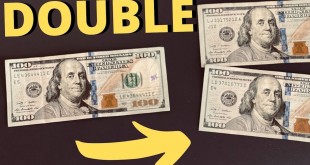8 min read
Opinions expressed by Entrepreneur contributors are their own.
In today’s global economy, racism is not only ignorant, it’s costly. Just ask Facebook, which has lost billions in advertising renevue amid calls to eliminate hateful rhetoric from its platform.
Hopefully, this will ring the alarm bell for others who are snoozing under the blanket of “business as usual.” People are not just going to go away quietly this time. If they’ve been willing to risk their lives during a pandemic to protest for equal rights, the uprising will continue. It’s time for a real shift, and that includes a genuine effort to nurture and elevate Black founders to a position where they can access the capital needed to introduce new and profitable ideas to the marketplace.
The sticking point is that too many companies and investors view supporting Black entrepreneurs as a matter of social impact or charity, rather than good business sense. What needs to happen now is for those who control the purse strings and equitably spreading the wealth cease viewing business in black and white and simply let an entrepreneur be an entrepreneur.
In the interest of hastening change, I’ve laid out answers to several questions even the most well-intentioned would-be allies might be asking themselves. The moment to let Black entrepreneurs be entrepreneurs begins now.
Related: It Doesn’t Take a Rocket Scientist to Solve the Racism Problem in Business
What do you mean when you say, “Let a Black entrepreneur be an entrepreneur”?
The message is: Let the Black entrepreneur be an entrepreneur, not somebody you think you’re giving charity to. It’s business. A lot of times, when you’re Black, that precedes everything, but when you think of a great painter, you don’t say it’s a great white painter. You just say it’s a great painter.
Is it still useful when I donate money to organizations that elevate Black entrepreneurs?
A lot of businesses, when looking at Black founders, say, “Oh, well we’re going to do a charitable donation or give to a nonprofit.” But we’re bringing in opportunity. See the person as an entrepreneur, not a charity case. These funds that take all this money that Google, Pay Pal and SoftBank want to solve the issue with are going to come back and say, “We didn’t find any Black companies, because we don’t do charity.”
What they’re saying is, “We don’t want to give the money to you.” The people putting these funds up for VCs to distribute need to understand that what they’re coming back to them with is a bunch of baloney.
How can I better ensure funds meant to nurture Black businesses are being best put to use?
My solution is for the Googles and PayPals and SoftBanks to make sure that when they’re dealing with the VCs who are going to be in charge of the money they decided to set aside for Black businesses, to treat the businesses as an opportunity that’s coming to them.
If SpaceX is an opportunity, you’re going to put massive amounts of money there. If it’s an act of charity, you’re going to put $5,000. If I’m Google, I say to Andreessen Horowitz and all these other companies that I want them to find companies unlocking opportunities within these communities. Then, they cannot come back with excuses to take these funds and put them somewhere else. When you invest in underrepresented founders, automatically, they’re going to open doors for you to places you are not even aware are there.
What’s an example of lucrative Black entrepreneurship that white investors and executives missed out on?
Forever and ever, we’ve been saying that when you go to the makeup aisle, you get a powder that’s too light for your face or too dark for your face, so people have to improvise at home by mixing. You have a whole market, but no one was listening. Rihanna said, “You know what? I see my mom doing that, and I have to do that myself,” so she launched Fenty Beauty, which has completely transformed the industry, and now everyone’s running to catch up.
It’s the same thing with Black Panther. It’s again about serving an underserved market, not going into it as a charity or checking a box. Rihanna happens to be a celebrity, but it’s about the fact that she got the money to open that door, because we don’t get the money to open those doors. There are a ton of us out there who know where a lot more doors are.
How have VCs continued to raise the ceiling for Black founders and lower the floor for privileged entrepreneurs?
A lot of times, you have one person who has $336 million and another person who is struggling to put everything together. In a field where you’re judged by daily active users, one person might have 10,000 people, and the other person with $336 million might have 10 million people, but you’re being judged by the same metrics.
So investors will say, “Well, we’re gonna go find a Black Jason Goldberg with 10 million followers,” and then come back and say, “Well, we didn’t find anyone with 10 million followers. We found nice people who are trying really hard with maybe 10,000 followers, so we’re now going to take this money that you’ve allocated specifically for them and go put it somewhere else.”
You will never find a Black entrepreneur with 10 million users or generating that much revenue because the seed hasn’t been planted to allow them to get to this high ceiling. You can’t compare oranges and apples in that way, and that’s another system that’s in place to make sure no new entrants get in there and justify continuing the status quo.
What about the argument that there is a pipeline issue when it comes to Black and brown entrepreneurs?
People are graduating. People are coding. People have ideas that are genetically encoded. It’s just about the right opportunity. People are going to go where they’re valued. When you look at a company like Facebook, and you don’t see one single Black face on their board or their leadership retreat they’re posting pictures of, you’re not going to want to go there. It’s not a pipeline problem. It’s just a blockage at the entrance keeping minorities from coming in.
Is most of this unconscious bias, or something worse?
The gap is not closing because you have people who are saying, “Hey, help us close the gap,” but somehow the bridge is not being built. As a Black founder, you are judged on results and performance. Everybody is judged on their ideas. How can you show performance if your idea is not being funded? It’s redlining.
The example I give is that a lot of Black founders will build the company, people are excited about it, and when it’s time to go from seed to growth, you’ll see the headline, “Bubl raises XYZ, Sean Ramsay out” or, “Hopstop raises X, Chinedu Echeruo out.” It’s a redlining. When you like the food but you don’t like the farmer, you want to come and take the farm and put the farmer out, and it happens over and over again.
Related: The First-Ever Live, Virtual Reality Comedy Special Could Only Happen Now
What is the very next step I should take if I want to make more money with a wider variety of founders?
There are two ways to look at investing in underrepresented communities: It’s a great opportunity to open up new markets or a way to sustain and take care of your current customers. Imagine if the top Black athletes, influencers and musicians with more than one billion followers combined left the platforms that don’t have any Black people in their leadership or have racist algorithms and went to platforms where they’re valued and appreciated? People are sick and tired of dealing with “isms.” They simply want a fair chance, but if they are kept from accessing heaven here on earth, they’ll raise hell.
Source link
 Best Stock Hints Latest Tips To Buy & Invest Best Stocks Today
Best Stock Hints Latest Tips To Buy & Invest Best Stocks Today




